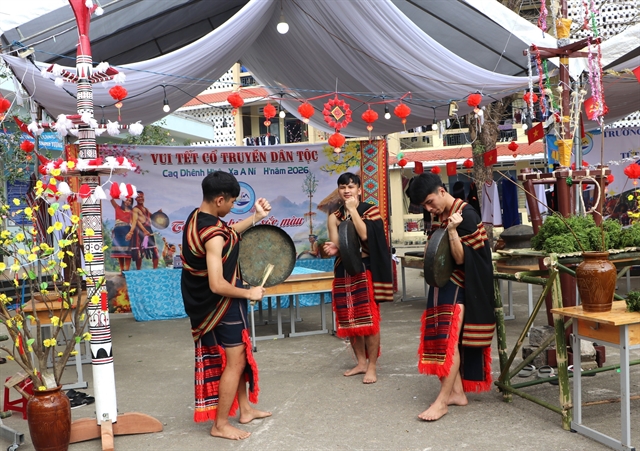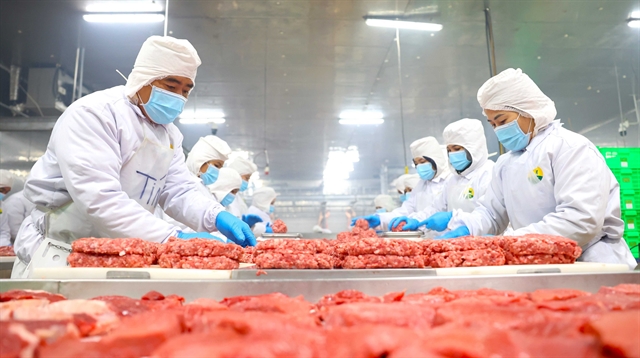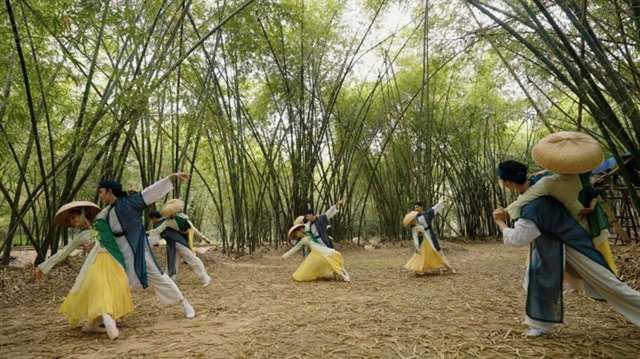.jfif) Opinion
Opinion

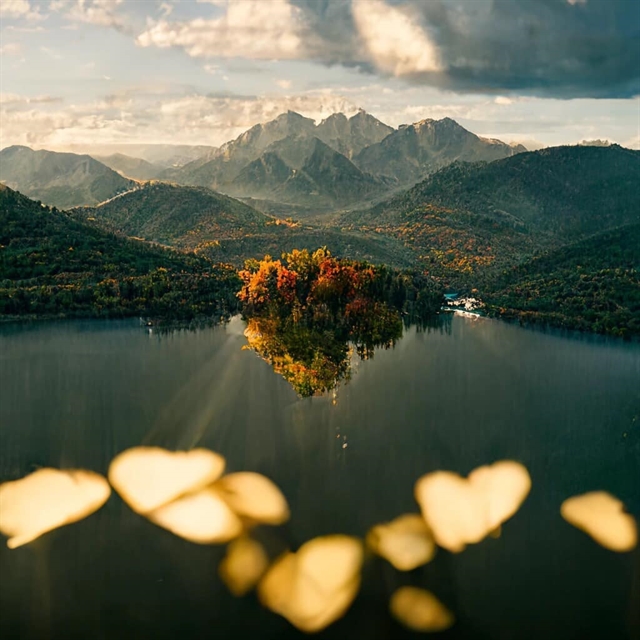 |
| A Photo by AI, created by James Duong. |
The future is firmly looking towards a high-tech revolution, with AI recently becoming a bigger part of human life and creativity.
As with any new technology, there are concerns about its impact, and is now posing big questions, from the technical to the ethical, in photography.
Some experts have said that instead of being afraid of AI, sometimes condemned as a perfect tool for plagiarism, artists should learn and grasp the technology.
Dương Quốc Bình, alias James Duong, director of Photojournalism Concentration at the Institute of Journalism, Academy of Journalism and Communication, highlighted the outstanding benefits of high-tech digitalisation, including AI in photography.
High-tech and digital advances applied in photography offered more chances for people to access photography, allowing them to create beautiful images that were once impossible to achieve, he said.
"Although high-tech and digitalisation with the AI application and interference has stirred an increasing wave of controversial opinions in the creative art, it is obvious that they are helping improve the popularisation of photography," Bình told Việt Nam News.
Bình was also keen to point out the social role of AI.
"We cannot deny the positive effects of high-tech digitalisation and AI on social activities and education. Let's return to hundreds of years ago, when photography was just a very strange idea to humans. We did not have a clue about creating images until a camera was invented in the early 19th century," he said.
"From complicated manual darkroom techniques, through generations of technological revolution, we now have many types of high-tech and digital cameras that help photographers create wonderful works."
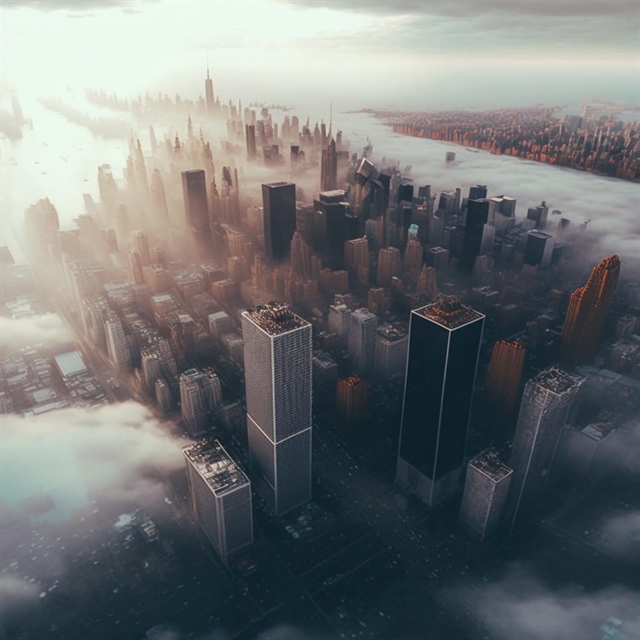 |
| A Photo by AI, created by James Duong. |
However, the expert said that while bringing more opportunities for photographers, both professional and amateur, AI tools were hindering participation in real life.
"Instead of going outside to catch a sight by themselves in the reality of life, AI tools now just create works without any real emotion or experience," he said. "The abuse or misuse of AI might also lead photographers to destroy visual values."
Artist Nguyễn Xuân Khánh, a self-taught photographer, recently told the Nhân Dân (The People) weekly about the technological effects on the quality of photographs and how to distinguish technological mastery and dependence.
Taking his art works of the Bayon Temple in Cambodia as an example, Khánh said when the photos were taken focusing on the smiling faces of the four Gods on the statues, the reflection of light from the stone made it hard for him to highlight them well.
"In this situation, I think it is necessary to take advantage of technology. However, to what extent does it interfere or enhance the value of the photo? The question depends on the photographer's perception," Khánh said.
He said that to distinguish between mastery and dependence on technology in photography, each photographer needed to look deeply into his or her personal desires when taking photos.
"What picture can satisfy an idea? Can the photo reflect what inside his mind, or is it simply just for showing off good machinery or technology. The answer can only be determined if they can know how to choose the right techniques and technological tools," Khánh said.
According to Khánh, young people today come to photography quickly and take advantage of new technology in photography as soon as possible.
"Vietnamese people are technically keen. But photography is an art, and we have to give ourselves a stronger foundation with knowledge and feelings. Refining beauty from existing reality is an extraordinary distillation," Khánh said.
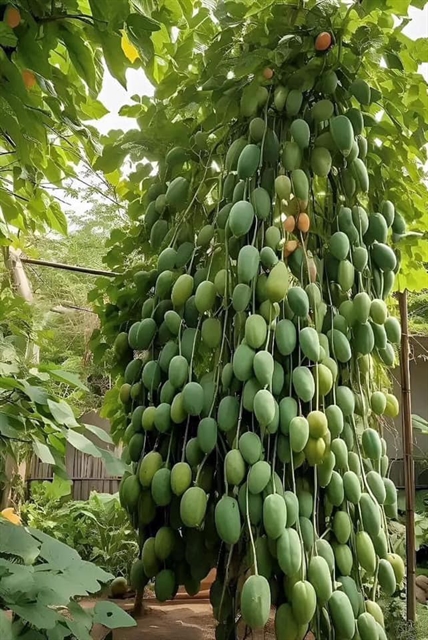 |
| FRUITS OF DIGITAL LABOUR: A photo suspected of applying AI shows an unbelievable fruit-laden small mango tree. Photo cuoi.tuoitre.vn |
The development of diverse forms of expression, including high-tech and AI tools in photography, will expand the scope of reflection, enrich content and beautify ideas in a photograph, enabling photographers to do great things once thought to be impossible in the language of images.
Trương Văn Vị, a photojournalist, said he welcomed AI as it can support photographers in their creations.
"For example, editing and finishing a photo previously needed many processes using a computer mouse. Editing some photos even take days. Today, AI can help get it done with just one click and complete it within minutes," Vị said.
"AI helps a lot in the field of modelling and fashion photography. The beautifying processes such as 'leg pulling and face slimming' had to be done manually before, but now with AI, editors only need a few mouse drags to make the photos perfect.
"Instead of going to the scene to take pictures, with AI photographers can now take pictures using computer commands. What photo do you want? Just describe it, and AI will find and create exactly what you need."
However, Vị also warned that the use of AI in photography could easily mislead viewers or create fake images. Moreover, he added that AI-generated photographic works might not be able to truthfully reflect the reality and the soul of a real person or a real character.
To minimize the side effects of new technologies in photography, including the use of AI to mislead viewers, Vị appealed to photographers to only use AI to beautify a photo taken by themselves.
"Don't sit at home describing a photo and let AI create 100 per cent of the work," he said.
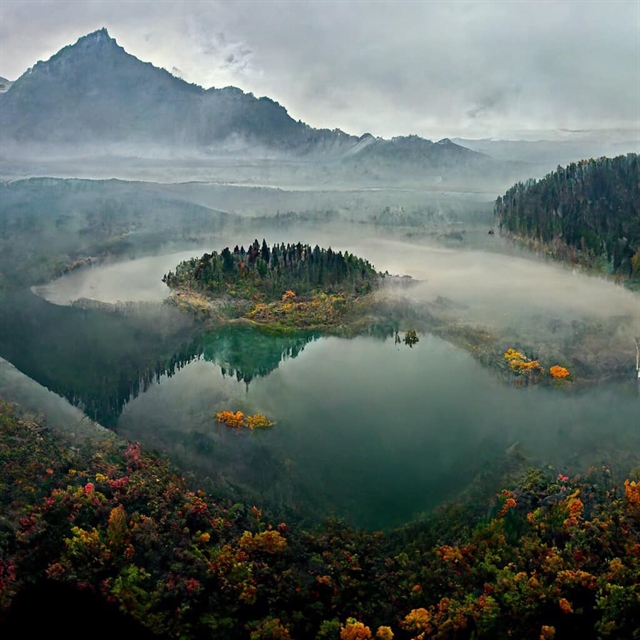 |
| A photo by AI, created by James Duong |
Speaking of the potential negative side effects of AI in photography, Bình said that it was really hard to prevent, and suggested authorities consider regulations and rules for the use of AI in the sector.
"Actually, such rules may only be for the professional photography community to try and limit some of the wrongdoings in AI. In some cases, it is impossible to control its abuse and misuse, especially among amateurs," Bình said.
AI has revolutionised the way we think about photography, but with or without AI, the development of each photographer's mindset and his or her responsibility for the photos is the most important factor to give value to the work. VNS

